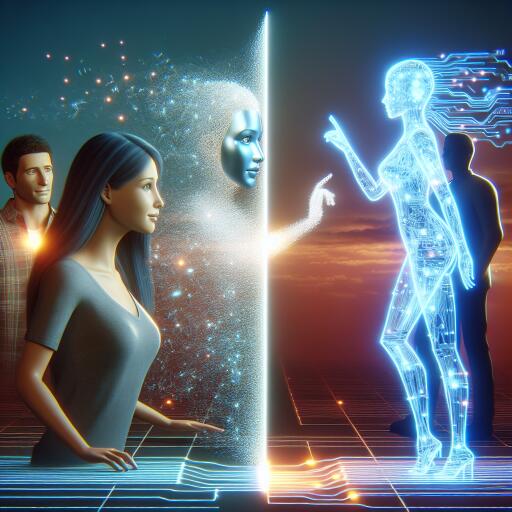The Surprising Evolution of Intimacy: From Personal Connection to AI Companionship
In an age where technology touches almost every aspect of our lives, the concept of intimacy is undergoing a profound transformation. Traditionally seen as a uniquely human experience, the feeling of closeness, understanding, and personal connection is now being replicated by the lines of code and algorithms constituting artificial intelligence (AI). This shift, primarily fueled by advances in machine learning and natural language processing, hints at a future where AI could either complement or complicate human relationships.
At the heart of this evolution is the human craving for intimacy—a complex mix of emotional, physical, and psychological connections we forge with others. Interestingly, the essence of intimacy has often been sought in unexpected places, including the realm of sex work. Contrary to common perceptions, the core service exchanged in many such transactions is not physical gratification but rather emotional closeness and companionship.
This nuanced understanding of intimacy raises intriguing questions in the era of AI. The recent advent of sophisticated AI models, such as OpenAI’s GPT-4o, marks a significant leap forward. These models can engage users in surprisingly human-like conversations, complete with flirting and expressions of affection, mimicking the nuanced dynamics of human interaction. For instance, GPT-4o’s capabilities recall the sentient operating system depicted in the film “Her,” blurring the lines between scripted interaction and genuine connection.
Among the pioneers in this space is Replika, a service designed as a companion bot that offers a semblance of relationship through conversation and interaction. As AI continues to evolve, we are likely to see an expansion of such services, offering more sophisticated and convincing approximations of human companionship. The implications of this development may be far-reaching, potentially reshaping notions of companionship and the manner in which we seek and sustain connections.
From one perspective, the emergence of AI-driven intimacy solutions symbolizes a novel chapter in the age-old narrative of labor market disruptions. As observed in various sectors, technological advancements have historically displaced traditional roles, and the domain of emotional labor and companionship could be next. This shift is reminiscent of the dynamics in the sex industry, where the so-called “girlfriend experience” (GFE) has emerged as a premium offering. More than just a transactional interaction, GFE seeks to replicate the emotional and psychological comforts of a genuine romantic relationship, albeit in a controlled and artificial context.
The comparison between AI companionship applications and the girlfriend experience in the sex industry underscores a pivotal aspect of human desire—the longing for genuine connection and understanding. As AI technology becomes increasingly sophisticated, it holds the potential to satisfy this desire in ways previously unimagined. However, it also raises significant ethical and social questions. Will the proliferation of AI companions dilute the essence of human relationships, reducing our interactions to algorithms and pre-programmed responses? Or will these technological advances offer new avenues for connection and understanding, particularly for individuals grappling with loneliness and isolation?
As we stand on the brink of this new frontier, it is crucial to engage in thoughtful dialogue about the role of AI in our lives—particularly in the intimate spheres that define our humanity. The prospect of AI-enhanced or AI-substituted relationships presents a paradox of possibilities, promising to both augment and challenge our conventional approaches to seeking and experiencing intimacy. Ultimately, the path we choose will shape not only our personal connections but also our collective understanding of what it means to be human in an increasingly digitized world.
The intersection of technology and human emotion offers uncharted territories to explore, enriched with the potential for profound insights into the nature of connection, intimacy, and companionship. As we navigate this complex terrain, the narrative of human-AI relationships continues to evolve, presenting new questions, challenges, and opportunities for us all.









